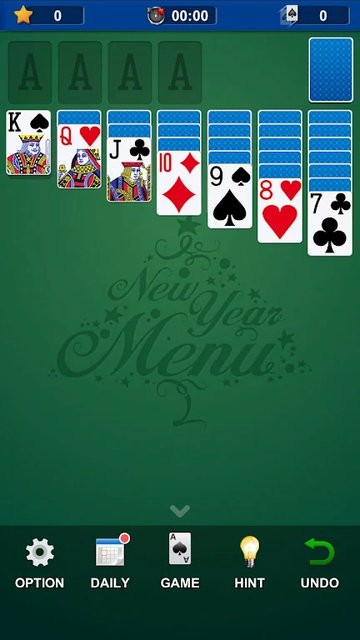Solitaire, also known as Patience, is a classic single-player card game widely regarded as a representative of computer games. Beloved for its simple yet engaging rules, Solitaire is recognized for the strategic and challenging aspects it offers to players. This article delves into various facets of Solitaire, covering its historical origins, basic rules, in-game strategies, and diverse variant versions.
Historical Origins
The history of Solitaire dates back to the 18th century, initially traced to France and known as "patience" rather than the now-familiar Solitaire. It underwent several transformations throughout history, only becoming a popular card game in Europe and the United States in the early 20th century. With the proliferation of computers, Solitaire became a standard game bundled with the Windows operating system in the 1990s, contributing to its widespread popularity.
Basic Rules
The basic rules of Solitaire are relatively simple, yet the game's strategic nature is not to be underestimated. A standard deck of cards is arranged into seven columns, with the first column having one card, the second column having two cards, and so forth, up to the last column having seven cards. Only the top card in each column is face-up, while the others remain face-down.
The objective of the game is to move all cards to four foundation areas, corresponding to the suits—hearts, diamonds, clubs, and spades. From the seven columns and four foundation areas, players must skillfully move and organize cards to meet the final victory conditions.
Strategy and Skills
In Solitaire, while luck plays a role, success hinges on the player's strategy and skills. Common strategies include preserving spaces, keeping some columns with face-down cards for later use, prioritizing moving the topmost cards to uncover more cards, and consistently moving Aces (A) to the foundation areas to build stacks for other cards.
Moreover, when moving cards, consider moving consecutive cards to break stacks and uncover more cards. Such strategies assist players in dealing with challenges in the game, increasing the chances of completing it successfully.
Variant Versions
Over time, Solitaire has spawned various variant versions to cater to different player preferences. Some well-known variants include Spider Solitaire, Freecell, and Klondike Solitaire. Each variant introduces unique rules and elements, adding diversity and excitement to the game.
Modern Solitaire
Today, Solitaire transcends traditional card decks and computer screens, extending its popularity to mobile devices. Many smartphones and tablets come pre-loaded with Solitaire game applications, allowing players to enjoy this classic single-player card game anytime, anywhere. This further expands Solitaire's audience, making it a globally embraced entertainment choice.

























